In an effort to make the research around tapping more accessible to the general public David Feinstein, Ph. D., is writing summaries of these studies. You can find all the summaries that have been shared so far here.
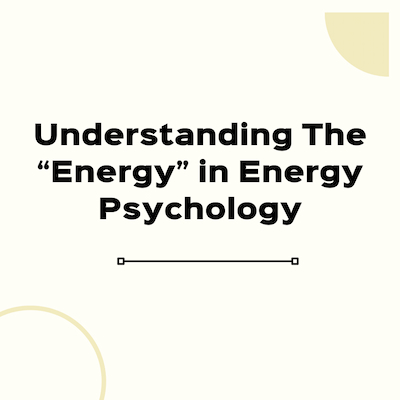 In more than 120 clinical trials, energy psychology, which is the umbrella term for the Emotional Freedom Techniques, Thought Field Therapy, “tapping, “and related approaches, has been shown to deliver significant improvements across a wide range of psychological and physiological conditions with striking speed and durability.
In more than 120 clinical trials, energy psychology, which is the umbrella term for the Emotional Freedom Techniques, Thought Field Therapy, “tapping, “and related approaches, has been shown to deliver significant improvements across a wide range of psychological and physiological conditions with striking speed and durability.
But despite impressive results in clients with issues ranging from PTSD and depression to cardiovascular and immune disorders, many therapists and clinicians dismiss the approach because of the vague and often controversial use of the term energy in energy psychology. Read more>>>
About David: DAVID FEINSTEIN, Ph.D., is a clinical psychologist and a pioneer in developing innovative therapeutic approaches, leading to nine national awards for his books on consciousness and healing. He and his wife, Donna Eden, have built the world’s largest and most vibrant organization teaching energy medicine. Their latest award-winning book, The Energies of Love, achieved best-seller status on the NY Times Relationship List. David has served on the faculties of The Johns Hopkins University School of Medicine, Antioch College, and the California School of Professional Psychology.
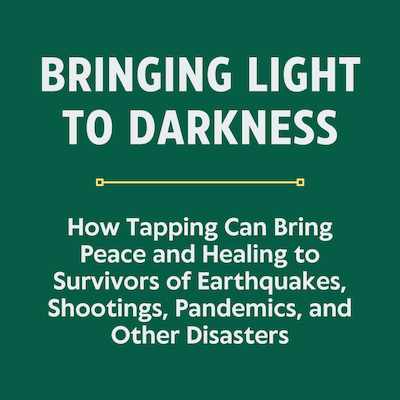 The number of natural disasters, from hurricanes and tornadoes to floods and forest fires, has nearly doubled in the past decade compared to the previous decade due largely, according to the United Nations, to “extreme weather events.” Meanwhile, human-made disasters–such as mass shootings, warfare, violent conflicts impacting civilian populations, and industrial accidents–have also increased exponentially.
The number of natural disasters, from hurricanes and tornadoes to floods and forest fires, has nearly doubled in the past decade compared to the previous decade due largely, according to the United Nations, to “extreme weather events.” Meanwhile, human-made disasters–such as mass shootings, warfare, violent conflicts impacting civilian populations, and industrial accidents–have also increased exponentially.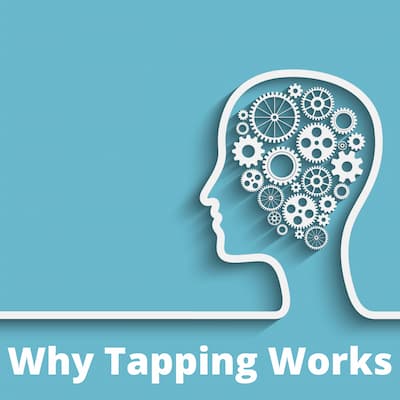 When acupoint tapping protocols were, in the 1980s, first formulated with a focus on psychological change, they were met with skepticism – even mockery – by the clinical community. But a lot has changed since then. Today, hundreds of clinical trials, peer-reviewed papers, and anecdotal reports show the positive – often rapid – transformational effects of energy psychology and tapping. Hidden within this growing literature are 6 fundamental evidence-based premises that demonstrate why tapping works and how it can be used as a remarkably powerful and effective technique in treating a myriad of challenging psychological and physiological issues.
When acupoint tapping protocols were, in the 1980s, first formulated with a focus on psychological change, they were met with skepticism – even mockery – by the clinical community. But a lot has changed since then. Today, hundreds of clinical trials, peer-reviewed papers, and anecdotal reports show the positive – often rapid – transformational effects of energy psychology and tapping. Hidden within this growing literature are 6 fundamental evidence-based premises that demonstrate why tapping works and how it can be used as a remarkably powerful and effective technique in treating a myriad of challenging psychological and physiological issues. 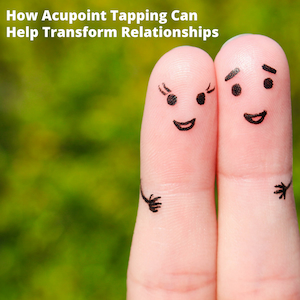 Relationships are challenging for everyone, yet the quality of your relationships correlates strongly with your happiness, sense of well-being, and even your physical health. Can acupoint tapping help you and your clients address the challenging issues that even the best relationships bring our way? Practitioners are, in fact, finding that the answer to that question is “Yes!” Tapping can be effectively applied to foster greater intimacy, trust, understanding, and ease.
Relationships are challenging for everyone, yet the quality of your relationships correlates strongly with your happiness, sense of well-being, and even your physical health. Can acupoint tapping help you and your clients address the challenging issues that even the best relationships bring our way? Practitioners are, in fact, finding that the answer to that question is “Yes!” Tapping can be effectively applied to foster greater intimacy, trust, understanding, and ease.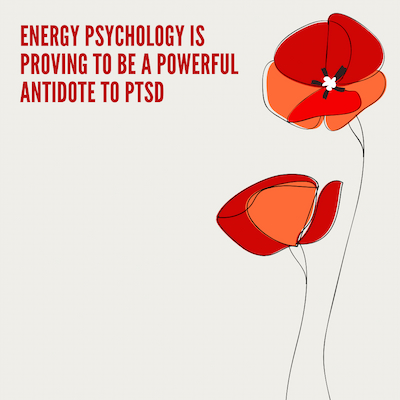 Every year, more than 8 million people in the United States struggle with Post Traumatic Stress Disorder (PTSD) along with another 350 million people worldwide. PTSD can occur in people who have experienced or even witnessed a severe trauma, and it affects areas of the brain connected to managing difficult emotions, especially fear and anxiety. PTSD can create intense physical, emotional, and mental distress, and if left untreated, it can lead to long-term psychological and physiological damage. Thankfully, energy psychology – in this article acupoint tapping – can help!
Every year, more than 8 million people in the United States struggle with Post Traumatic Stress Disorder (PTSD) along with another 350 million people worldwide. PTSD can occur in people who have experienced or even witnessed a severe trauma, and it affects areas of the brain connected to managing difficult emotions, especially fear and anxiety. PTSD can create intense physical, emotional, and mental distress, and if left untreated, it can lead to long-term psychological and physiological damage. Thankfully, energy psychology – in this article acupoint tapping – can help! 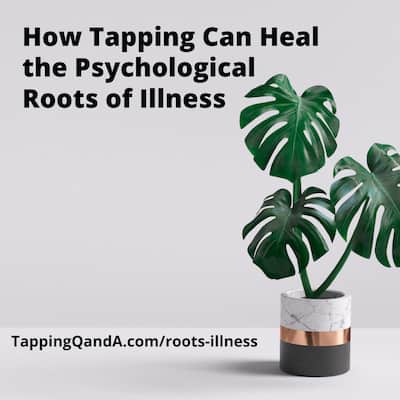 Over 2,000 years ago, Aristotle said, “Body and soul respond to one another in sympathy.” His poetic observation probably arose from the fact that physicians of ancient Greece believed the life of the spirit is somehow intertwined with the state of the body and that emotional balance is a crucial influencer in health.
Over 2,000 years ago, Aristotle said, “Body and soul respond to one another in sympathy.” His poetic observation probably arose from the fact that physicians of ancient Greece believed the life of the spirit is somehow intertwined with the state of the body and that emotional balance is a crucial influencer in health.  I need to warn you upfront: This article may come across as a little harsh.
I need to warn you upfront: This article may come across as a little harsh. If you have been reading my website or newsletter for any length of time, then I am sure you have read something where I was bragging about my great editor. She is the best! (And more importantly she has become a good friend.)
If you have been reading my website or newsletter for any length of time, then I am sure you have read something where I was bragging about my great editor. She is the best! (And more importantly she has become a good friend.)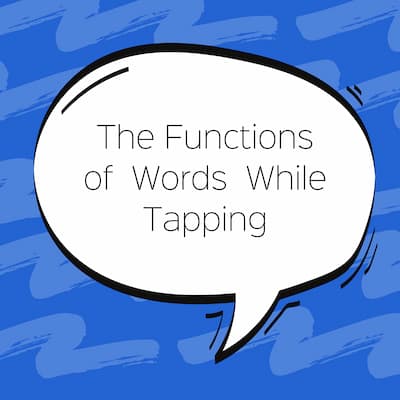 One of the biggest challenges in being an effective tapping practitioner comes down to this question: What words do I use (or ask my client to use) to accompany the tapping process?
One of the biggest challenges in being an effective tapping practitioner comes down to this question: What words do I use (or ask my client to use) to accompany the tapping process? Tapping on acupuncture points while saying certain statements aloud is a powerful tool for resolving mental, emotional, and physical difficulties. More than 120 clinical trials show the approach (which falls under the category of “Energy Psychology”) to be fast and effective in producing strong outcomes.
Tapping on acupuncture points while saying certain statements aloud is a powerful tool for resolving mental, emotional, and physical difficulties. More than 120 clinical trials show the approach (which falls under the category of “Energy Psychology”) to be fast and effective in producing strong outcomes. From the very beginning, the first step of Gary Craig’s Emotional Freedom Techniques (EFT) was to tap on the side of the hand and use what he called the set-up phrase: “Even though I have this issue I deeply and completely love and accept myself.”
From the very beginning, the first step of Gary Craig’s Emotional Freedom Techniques (EFT) was to tap on the side of the hand and use what he called the set-up phrase: “Even though I have this issue I deeply and completely love and accept myself.”